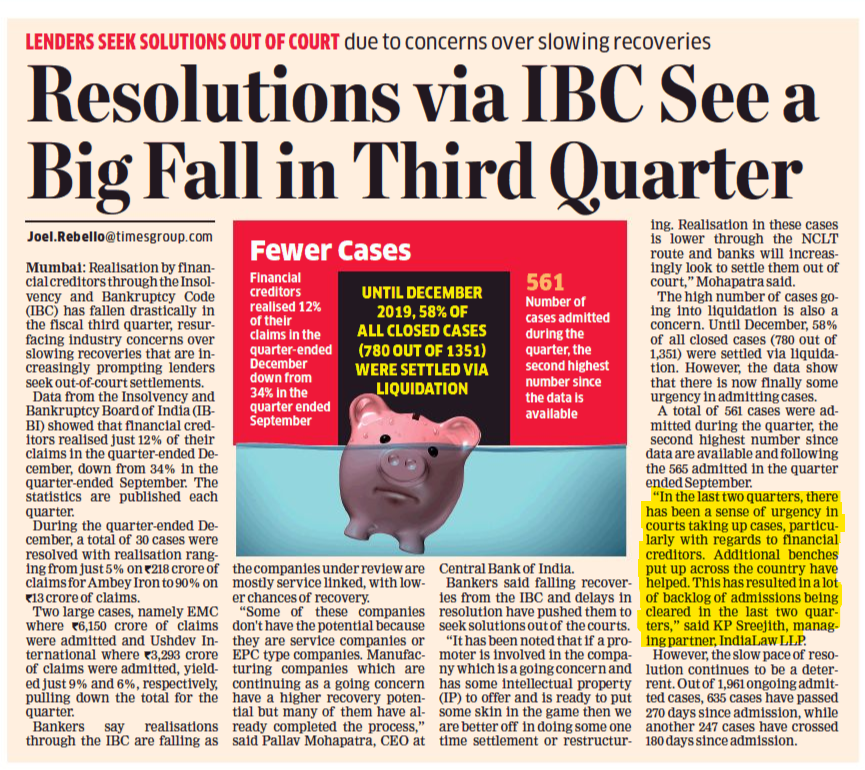Operational Creditors Cannot File Joint Application


Operational Creditors Cannot File Joint Application
National Company Law Appellate Tribunal (“NCLAT) in Uttam Galva Steel Limited Vs. DF Deutsche Forfaight AG[1] considered the following questions under Insolvency & Bankruptcy Code (the “Code”):
- Whether a joint application by two or more operational creditors’ is maintainable under Section 9 of the Code?
- Whether it is mandatory to file a ‘certificate of recognized financial institution’ along with an application under Section 9 of the Code?
- Whether a lawyer can issue demand notice under Section 8 of the Code on behalf of an Operational Creditor?
NCLAT was considering an appeal filed against an order of the Tribunal, which admitted an application under the Code.
1. Joint application by operational creditors
The cause of action arose out of a sale contract for sale of goods. Through an assignment deed, the right to receive payment under the contract has been vested with two entities, which are respondents under the current appeal. The appellant argued that two separate operational creditors could not file joint application under Section 9 of Code. The respondents, on the other hand, argued that there is only a single transaction and right to receive payment under the said transaction has been vested with two parties. Hence, a joint application filed by two respondents under a single cause of action is maintainable. After going though the provisions of Sections 8 and 9 of the Code, NCLAT held that a notice under Section 8 is to be issued by an Operational Creditor individually and the petition under Section 9 has to be filed by Operational Creditor individually and not jointly.
2. Certificate of financial institution
NCLAT also considered whether it is mandatory to file ‘certificate of recognized financial institution’ along with an application under Section 9 of the Code? While deciding this issue, NCLAT followed its own earlier judgment[2] on the same issue and reiterated that such certificate from a financial institution, maintaining accounts of the operational creditor, confirming that there is no payment of an unpaid operational debt by the corporate debtor is mandatory. NCLAT held that the certificate filed by the respondent is not from a recognized ‘financial institution’ as it is issued by a foreign bank and not maintainable.
3. Demand notice vs. lawyer’s notice
One of the contentions of the appellant was that the demand notice was not issued by the respondents but through their lawyer, who was not an authorized person. While considering this contention, NCLAT examined the formats of demand notices under the Code and held that demand notice/invoice needs to be issued either by the operational creditor or by a person who is authorized to act on behalf of the operation creditor. NCLAT held that a demand notice is different from a lawyer notice and an advocate/company secretary/chartered accountant can send demand notice on behalf of corporate debtor only if he has the authority of the board of directors. He is also required to state his position or relation with debtor in the notice. In the absence of such authority, his notice is invalid.
NCLAT also admitted another contention of the appellant that there was an existing dispute. Considering these aspects, NCLAT set aside the order of the Tribunal and dismissed the application filed by the respondents.
[1] Company Appeal (AT) (Insolvency) 39 of 2017
[2] Smart Timing Steel Limited vs. National Steel and Agro Industries Limited Company Appeal (AT) (Insolvency) No. 28 of 2017




